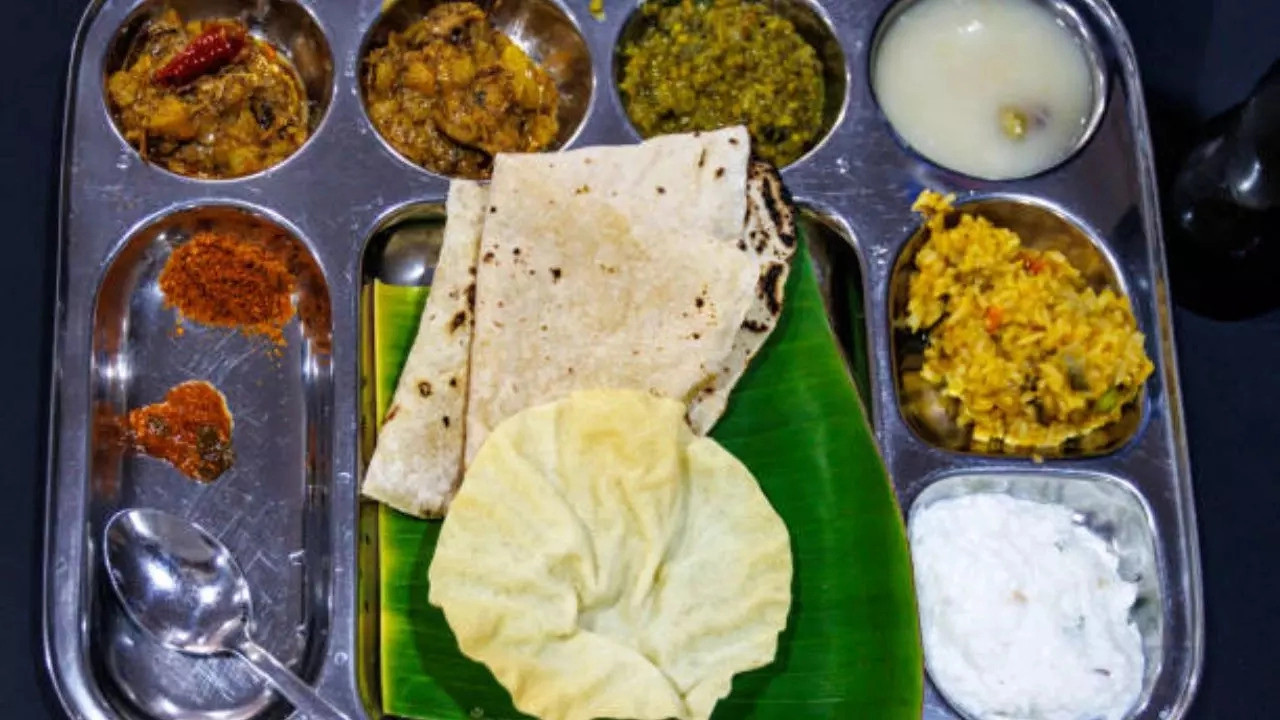Thali Woes: Indian Homecooked Meal Is Not Always Healthy, Says ICMR; Here's Why
Oct 28, 2024
News

ICMR says using too much fat, sugar, or salt is not good for your overall health and well-being even if made at home
It is a popular notion that anything that you eat at home is healthy. And why not? You would use fresh ingredients, less oil, no preservatives, and prepare everything hygienically to make your food healthy for your family. However, according to the Indian Council of Medical Research, food whipped at home can still be unhealthy.
The premier health body says using too much fat, sugar, or salt is not good for your overall health and well-being even if made at home.
What goes wrong with home-cooked food?
According to the ICMR guidelines, food packed with high fats and sugar is dense in energy. And regular consumption of these foods leads to obesity and being overweight along with a lack of essential nutrients like protein, vitamins, and fibre – all of which are important for keeping you fit.
According to experts, to make your food tasty and palatable, many of you may be going a little extra with oil, butter, sugar, or spices. Similarly, deep-fried dishes like bhature, poori, or kofte – lead to various kinds of heart disease, weight issues, and even type 2 diabetes.
Many people also extensively use processed condiments like ginger-garlic paste or tomato puree for food preparations, which often contain harmful preservatives and food colours.
Also, apart from these issues, overcooking is another problem that makes homecooked food unhealthy. According to experts, cooking vegetables on high flame, more than needed, can strip them of essential nutrients.
Portion size is another issue that makes food that you prepare with love go against your health goals. Excess calorie intake slows down metabolic changes, causes digestive issues, and increases the risk of chronic diseases.
How to make your home-cooked food healthy?
To make your Indian homemade preparation healthy and let your family enjoy it without sacrificing the flavours, you must follow these tips:
Use mustard oil, and ghee for cooking
Raw pressed oils like mustard oil and ghee are the best oils to cook with, but when eaten in moderation. The amount of fat used affects the calorie count fairly quickly as fat has the highest calories - 9 Calories per gram, so it can shoot up the calories in a meal very quickly.
Grill the food
Instead of deep frying, use the grill, pan frying, or air frying to have the same taste of food, without the dripping oil, fat, and calories.
Go for healthier options
According to experts, if you eat rice, choose steamed rice or brown rice over pulao or biryani. If you want to eat flavored rice, pulav or tehri is a better option over biryani.
Similarly, go for chapati over paratha or Naan if you are going to eat a full meal with dal and vegetables. A naan or paratha – mostly made with maida or all-purpose flour - on average has 250-300 calories and can go up to 600 calories if not cooked in a healthy way.
Generously incorporate herbs
Instead of adding too many spices – which can cause indigestion and acid reflux. Make use of herbs, which also double up as an alternative to salt.
Follow portion control
Even healthy dishes can quickly become unhealthy for the body if not eaten in the right portion. Make sure to always eat a little less than what you desire, especially for dinner.
Get Latest News Live on Times Now along with Breaking News and Top Headlines from Diet, Health and around the world.



